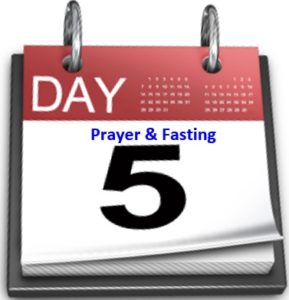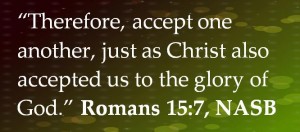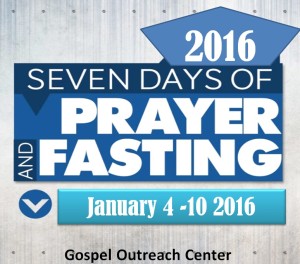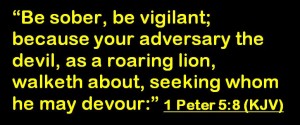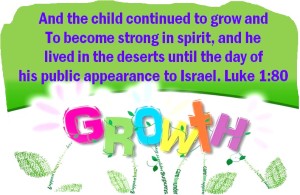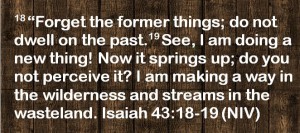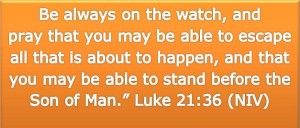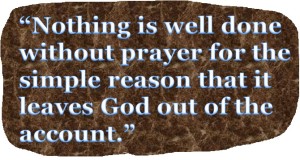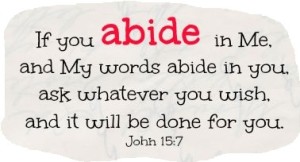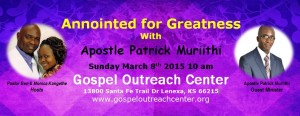Fasting
Fasting is one of the most powerful weapons God has ever given us for our daily lives.
We all go through times when we feel like we are not living up to our full potential. Sometimes we lose our energy and our spiritual sharpness . . . this causes us to lose our edge.
What does it really mean to lose your edge?
When a lumberjack keeps swinging away at the tree without sharpening his ax, the ax will soon become dull and ineffective. In much the same way, that can happen to us.
Going through our daily routines in our own strength wears us down. Little by little, we lose our closeness to God. Without that closeness, we become ineffective for the purposes His has for us.
Fasting can help you get back your passion! It can recharge you!
Although fasting lasts for a short season, it brings long-term results, which sharpens us, enabling us to face the challenges of life in His strength. Through fasting, you can experience spiritual renewal and direction for your life . . . restoration of relationship . . . healing . . . release from bondages . . . and so much more!
We begin year 2016 with 7 days of fasting. Fasting in January is much like praying in the morning to establish the will of God for your entire day. I believe that if we will pray and seek God and give Him our first and best at the beginning of the year, He will honor that sacrifice and bless our ENTIRE year! “But seek ye first the kingdom of God and His righteousness, and all these things shall be added to you” (Mathew 6:33).
But when you make fasting a way of life, you get even closer to God and grow in your spiritual walk like never before. Making fasting a lifestyle is like a lumberjack who takes time to rest and sharpen his ax periodically to be able to effectively finish the job set before him.
Fasting can help you Recover Your Passion, Recapture Your Dream and Restore Your Joy!
Fasting is a principle that God intended for everyone to practice. It is not a punishment; it is a privilege!
Make fasting a “lifestyle”! Join us, and thousands from around the world, in the Fasting Movement 2016.
What Is Fasting?
Biblical fasting is refraining from food for a spiritual purpose.
Prayer and fasting is defined as voluntarily going without food in order to focus on prayer and fellowship with God. Prayer and fasting often go hand in hand,You can pray without fasting. When Prayer and fasting are combined and dedicated to God’s glory they reach their full effectiveness. Having a dedicated time of prayer and fasting is not a way of manipulating God into doing what you desire. Rather, it is simply forcing yourself to focus and rely on God for the strength, provision, wisdom you need and gain a deeper fellowship with God. By taking our eyes off the things of this world through prayer and biblical fasting, we can focus better on Christ.
Fasting has always been practiced by true believers.
- Fasting helps subject our bodies to our spirits. (I Cor 9:27)
- Fasting is disciplining the body, mind, and spirit. (Prov. 25:28)
- Fasting is subordinating our flesh-desires to our spirit-desires. (Gal 5:17)
- Fasting helps set the priorities in our lives. (Mt 6:33)
- Fasting is longing after God. (Ps 63:1-2)
Why Should We Fast?
- Honor God – Mt 6:16-18, Luke 2:37, Acts 13:2, Mt 5:6
- Humble Yourself – 2 Chron 7:14-15
- Discerning Healing – I Cor 11:30, James 5:13-18, Isaiah 59:1-2
- Deliverance from Bondage – Mt 17:21, Is 58:6-9 (loose bands of wickedness)
- Revelation – God’s vision and will – Dan 9:3, 20-21, Dan 10:2-10, 12-13
- Revival – personal and corporate – Acts 1:4, 14 / 2:16-21, Joel 2:12-18
- Repentance – personal failures – Psalm 51: Jer. 29:11-14, James 4:8-10
There are several types of Fasting. The one you chose is between you and God. He will honor your best sacrifice.
Full Fast
Drink only liquids (you establish the number of days).
The Daniel Fast
Eat no meat, no sweets and no bread. Drink water and juice. Eat fruits and vegetables.
3-Day Fast
This fast can be a Full Fast, Daniel Fast or give up at least one item of food.
Partial Fast
A partial fast is from 6:00 am to 3:00 pm or from sun up to sundown. You can select from three types of fasting —a Full Fast, Daniel Fast or give up at least one item of food.
Relation to Prayer and Reading of the Word:
1 Samuel 1:6-8, 17-18, Nehemiah 1:4, Daniel 9:3, 20, Joel 2:12, Luke 2:37, Acts 10:30, Acts 13:2
Corporate Fasting:
1 Samuel 7:5-6, Ezra 8:21-23, Nehemiah 9:1-3, Joel 2:15-16, Jonah 3:5-10, Acts 27:33-37
Remember that it is the attitude of a heart sincerely seeking Him to which God responds with a blessing (Isaiah 58, Jeremiah 14:12, 1 Corinthians 8:8). May God greatly bless you as you fast!
When you eliminate food from your diet for a number of days, your spirit becomes uncluttered by the things of this world and amazingly sensitive to the things of God. As David stated, “Deep calls unto deep” (Ps. 42:7). David was fasting. His hunger and thirst for God were greater than his natural desire for food. As a result, he reached a place where he could cry out from the depths of his spirit to the depths of God, even in the midst of his trial. Once you’ve experienced even a glimpse of that kind of intimacy with our God—our Father, the holy Creator of the universe—and the countless rewards and blessings that follow, your whole perspective will change. You will soon realize that fasting is a secret source of power this is overlooked by many.
A disciple is not above his teacher, but everyone who is perfectly trained will be like his teacher. —Luke 6:40
During the years that Jesus walked this earth, He devoted time to teaching His disciples the principles of the kingdom of God, principles that conflict with those of this world. In the Beatitudes, specifically in Matthew 6, Jesus provided the pattern by which each of us is to live as a child of God. That pattern addressed three specific duties of a Christian: giving, praying, and fasting. Jesus said, “When you give…” and “When you pray…” and “When you fast.” He made it clear that fasting, like giving and praying, was a normal part of Christian life. As much attention should be given to fasting as is given to giving and to praying.
Solomon, when writing the books of wisdom for Israel, made the point that a cord, or rope, braided with three strands is not easily broken (Eccles. 4:12). Likewise, when giving, praying, and fasting are practiced together in the life of a believer, it creates a type of threefold cord that is not easily broken. In fact, as I’ll show you in a moment, Jesus took it even further by saying, “Nothing will be impossible” (Matt. 17:20).
Could we be missing our greatest breakthroughs because we fail to fast? Remember the thirtyfold, sixtyfold, and hundredfold return Jesus spoke of (Mark 4:8, 20)? Look at it this way: when you pray, you can release that thirtyfold return, but when both prayer and giving are part of your life, I believe that releases the sixtyfold blessing. But when all three—giving, praying, and fasting—are part of your life, that hundredfold return can be released!
If that’s the case, you have to wonder what blessings are not being released. What answers to prayer are not getting through? What bondages are not being broken because we fail to fast?
Matthew tells the story of a father who had a demon-possessed son. For years he watched helplessly as his son suffered severe convulsions. As he grew older, the attacks became so severe that the boy would often throw himself into an open fire or a trench of water. A suicidal spirit tormented him constantly; the situation became life-threatening.
Having exhausted every attempt to cure the boy—even talking him to the disciples with no avail—the father’s plight seemed impossible. Then he heard that Jesus was near. Going to the Master, he cried, “Lord, have mercy on my son: for he is lunatick, and sore vexed: for often times he falleth into the fire, and oft into the water. And I brought him to thy disciples, and they could not cure him” (Matt. 17:15, KJV).
When the boy was brought to Jesus, the Bible ways He “rebuked the devil; and he departed out of him: and the child was cured from that very hour” (v. 18, KJV). But what made the difference? After all, Matthew 10:1 records that Jesus had already given the disciples power to cast out evil spirits and to heal every disease. So why couldn’t the disciples cast out the demon and cure the boy?
That’s what they wanted to know, too, so later that night, when they were alone with Jesus, they asked Him. Jesus replied, “Because of your unbelief: for verily I say unto you, If ye have faith as a grain of mustard seed, ye shall say unto this mountain, Remove hence to yonder place; and it shall remove; and nothing shall be impossible unto you. Howbeit this kind goeth not out but by prayer and fasting” (Matt. 17:20–21, KJV).
Long before this incident, the Holy Spirit led Jesus into the wilderness, where He spent forty days and forty nights, taking no food. “Howbeit this kind goeth not out but by prayer and fasting.” For Jesus, casting out that stubborn demon wasn’t impossible.
If Jesus could have accomplished all He came to do without fasting, why would He fast? The Son of God fasted because He knew there were supernatural things that could only be released that way. How much more should fasting be a common practice in our lives?
Fasting Is for Everyone
Perhaps you’re thinking, “I still don’t know how fasting can really be for me.” According to the words of Jesus, it is the duty of every disciple and every believer to fast. When addressing the Pharisees as to why His disciples did not fast, Jesus replied, “Can you make the friends of the bridegroom fast while the bridegroom is with them? But the days will come when the bridegroom will be taken away from them; then they will fast in those days” (Luke 5:34–35).
Then they will fast. Jesus didn’t expect His disciples to do something He hadn’t doen as well. Jesus fasted, and according to the words of Peter, Jesus is our example in all things (1 Pet. 2:21).
-Fasting brings rewards.
There’s another vital point that I want you to see in Matthew 6: God delights in giving rewards. Not only that, but He says that when giving, praying and fasting are practiced in your life, He will “reward you openly.”
A good example of such open reward can be found in Daniel. While in Babylonian captivity, his fasting—even partial fasting of certain foods—brought about the open reward of God, who blessed Daniel with wisdom beyond that of anyone else in that empire.
Later, in chapter 10, Daniel was grieved and burdened with the revelation he had received for Israel. He ate no choice breads or meats and drank no wine for three weeks. Then he describes the angel that was sent to him—which had been delayed by the prince of Persia for twenty-one days—with the answers Daniel sought. His fast broke the power of the delayer and released the angels of God so that God’s purpose could be revealed and served.
This is just the tip of the iceberg. Do you desire to know God’s will for your life, whom you should marry, or what you should do in a critical situation? Fasting brings you to a place of being able to clearly hear God’s will.
Fasting demonstrates repentance.
Joel prophesy of judgment upon unfaithful Israel was followed by a divine call to ward off judgment through a fast of repentance. The Lord beckoned, “Even now,?declares the LORD, Return to me with all your heart, with fasting and weeping and mourning. Rend your heart and not your garments. Return to the LORD your God, for he is gracious and compassionate, slow to anger and abounding in love, and he relents from sending calamity.?quot; (See Joel 2:12-13.) Similarly, James exhorts New Testament believers with these words: “Wash your hands, you sinners, and purify your hearts, you double-minded. Grieve, mourn and wail. Change your laughter to mourning and your joy to gloom. Humble yourselves before the Lord, and he will lift you up.” (See James 4:8-10.) Fasting demonstrates the brokenness of a heart that is truly repentant for sin.
The Daniel Fast
Step 1: Be Specific
Daniel was not vague in his objection to the Babylonian diet. He defined the problem immediately.
- The king’s food was against dietary laws.
- Daniel and his friends had vowed against wine.
- The king’s food had been offered up to idols/demons.
Step 2: Fast as a Spiritual Commitment
The Daniel Fast involves a spiritual commitment to God. “Daniel proposed in his heart that he would not defile himself” (Daniel 1:8).
Step 3: Reflect Inner Desire by Outer Discipline
Many people have an inner desire for better health, but they can’t discipline themselves to avoid junk food, and other foods that are not good for their health. The physical health you seek from God may be more than an answer to prayer. Your physical health can be linked to any of the following factors:
- Your food choices.
- The level of your spiritual commitment as reflected in constant prayer during the fast.
- Your time commitment. If you determine to fast for a certain time, keep it. For example, if you determine to fast 10 days, don’t stop on Day 9.
- Your testimony commitment. Your fast is a statement of faith to God that you want Him to heal your body, and faith is foundational to the Daniel Fast.
Step 4: Pray to Perceive Sin’s Role in Poor Health
Notice James 5:13-16:
Sin is something related to the cause of sickness.
Lack of health/healing may be the result of spiritual rebellion.
Lack of health/healing may be due to sin of wrong intake, i.e. drugs, pornography.
Repentance is linked to health according to James.
Elders have a role in healing both spiritual and physical health.
Sick people must desire to be well
The anointing oil could mean
- Medicine for healing,
- Symbolic of the Holy Spirit, or
- It could be baptism
Prayer alone may not gain healing, faith is the major factor.
In Greek there are several words for “sick”. James uses “Kanino”, which not only includes disease, but also means weak or weary.
Attitude is important. James said, “are there any among you suffering? Let him pray. Is anyone cheerful? Let him sing psalms.”
Step 5: Fast as a Statement of Faith to Others
Daniel was making a statement of faith when he asked for only vegetables to eat and water to drink, then dared the overseer to compare the appearance of the four sons of Israel with the young men who ate the king’s food.
Step 6: Learn the Effects of the Food You Eat
Why are some foods good for us, and other foods not? What does certain food do to your body? If we really knew, there would likely be some things we would never eat again.
Step 7: Yield All Results to God
Daniel said, “as you see fit, deal with your servants” (Dan. 1:13).
FOOD GUIDELINES FOR A DANIEL FAST
Daniel 1:12
“Please test your servants for ten days, and let them give us vegetables to eat and water to drink.”
Daniel 10:3 KJV
“I ate no pleasant food, no meat or wine came into my mouth, nor did I anoint myself at all, till three whole weeks were fulfilled.”
When going on a Daniel fast, or any type of fast, if you have questions outside of what Scripture says, prayerfully seek the Lord and be led by the Spirit for the specifics for your personal fast.
Whether you are beginning a Private Fast or Fasting Corporately as we do here at Gospel Outreach Center every year, I believe you will find these tips helpful.
FASTING TIPS
How to Begin
Start with a clear goal. Be specific. Why are you fasting? Do you need direction, healing,
restoration of marriage or family issues? Are you facing financial difficulties? Ask the Holy Spirit for guidance. Pray daily and read the Bible.
Preparing Spiritually
Confess your sins to God. Ask the Holy Spirit to reveal areas of weakness.
Forgive all who have offended you and ask forgiveness from those you may have offended (Mark 11:25; Luke 11:4;17:3-4).
Surrender your life fully to Jesus Christ and reject the worldly desires that try to hinder you (Romans 12:1-2).
Deciding What to Fast
The type of fasting you choose is up to you. You could go on a full fast in which you only drink liquids, or you may desire to fast like Daniel, who abstained from sweets and meats, and the only liquid he drank was water. Remember to replace that time with prayer and Bible study.
Deciding How Long
You may fast as long as you like. Most can easily fast from one to three days, but you may feel the grace to go longer, even as much as 21 to 40 days. Use wisdom and pray for guidance.
Beginners are advised to start slow.
What to Expect
When you fast your body detoxifies, eliminating toxins from your system. This can cause mild discomfort such as headaches and irritability during withdrawal from caffeine and sugars. And naturally, you will have hunger pains. Limit your activity and exercise moderately. Take time to rest. Fasting brings about miraculous results. You are following Jesus’ example when you fast.
Spend time listening to praise and worship. Pray as often as you can throughout the day. Get away from the normal distractions as much as possible and keep your heart and mind set on seeking God’s face.
Fasting is not recommended:
The following are among groups fasting is generally not recommended:
- People who are pregnant or breast-feeding,
- Children and teenagers since they are still growing and developing (in the bible only adults are known to have been permitted to fast),
- People in their senior or elderly years since their body organs need a consistent flow of body fluids and nutrients,
- People who are recovering from illness, injury or surgery (operation),
- People who are highly underweight,
- People who have diabetes, liver disease, kidney disease, heart disease, and other chronic health problems.
The rest of us with healthy bodies it’s merely a choice we make – to fast or not to fast. As far as God is concerned health limitations are the only worthy excuse, not busy careers, family obligations or environmental factors.
Don’t overeat when the time comes to end your fast. Begin eating solid food gradually; eat small portions or snacks.

